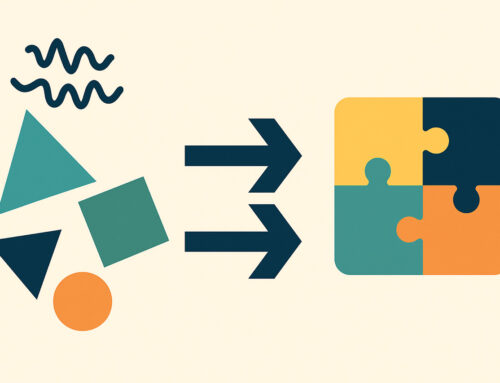Overcome Conflict with Legal Representation but Without Going to Court
By R. Paul Faxon, JD, Senior Consultant
In our litigious society, many people think first of going to court to resolve their disputes. But “lawyering up” doesn’t have to mean “going to war” and unintended consequences—which becomes especially risky in a family business with more than just business interests at stake. Sometimes you need an attorney who can advise you on the legal issues pertinent to a dispute, the merits of your case, and who can advocate for your interests, yet you may want to maintain a certain degree of control and play an active role in resolving your dispute. A Collaborative Law process can get you the help you need, without the delays, uncertainty, costs, publicity, limited remedies, and relationship damage that a court (or arbitration) proceeding usually entail.
What is Collaborative Law?
Collaborative Law is one of several alternative dispute resolution (ADR) techniques designed to resolve legal disputes outside of a civil litigation process overseen by a court judge. On one end of the ADR spectrum is binding private arbitration, similar to a private court proceeding without appeals and in which a neutral arbitrator imposes a judgment from a limited set of remedies. ADR also includes “consensual” proceedings in which both parties must come to agreement with the help of a facilitator; the best known of these processes is mediation.
Collaborative Law was established in 1990 in the U.S. and now is practiced in a variety of countries. While its best known application is in marital divorce proceedings, its use in resolving family business disputes, closely-held/partnership disagreements, conflicts within not-for-profits, and probate disputes is increasing. Attorneys and joint experts practicing in Collaborative Law normally go through a special training program sponsored by a Collaborative Law association.
The Collaborative Law process facilitates a “client-centric” approach in which the parties in conflict actively contribute to resolving disputes, with the support and confidence that comes from having their own legal counsel and a structured process. A Collaborative Law process also provides a safe vehicle to process the emotions and regrets that arise in family business conflicts. Collaborative Law also helps preserve ongoing relationships as well as industry or community reputations that are often damaged when litigation occurs. Litigation is a win-lose binary process; it can often be impossible for even important relationships to survive.
Collaborative Dispute Resolution
For family businesses, litigation can be especially damaging, because it polarizes adversaries and compromises important continuing relationships. What’s more, litigation exposes disputes to the public, tends to be expensive and time-consuming, and takes decision-making authority away from the people who must live with the outcome. Collaborative Law allows those involved to avoid the damaging side-effects of litigation, providing each “side” with a skilled advocate who works with their client as a team to collaboratively resolve the dispute with the other “side.”
“Collaborative Law is well suited to resolve family business disputes,” shares Doug Baumoel, founding partner of Continuity Family Business Consulting. “A collaborative process can be transformative for both parties and for the business—it can lead to a much better understanding of underlying interests, because it is not an adversarial process.”
How Collaborative Law Works
Collaborative Law is a structured process, with both parties using a variety of dispute resolution techniques to achieve a settlement. In Collaborative Law:
- Both parties are represented by counsel and agree not to litigate during the process
- Each party’s attorneys and their firms (as well as jointly retained experts) agree they cannot participate in litigation in the unlikely situation that a settlement is not reached
- The parties agree that admissions made during the Collaborative Law process cannot be introduced in the event of litigation
- All parties—clients and attorneys — agree to full disclosure of information (subject to a confidentiality agreement that all parties execute)
- Experts, if needed, are jointly retained—avoiding a potential “battle of the experts” that can be costly and time-consuming while enhancing transparency. The ability to retain joint experts provides the parties with the expertise, knowledge and education they may need to resolve the dispute
- Disputing parties remain front-and-center in carrying out the Collaborative Law process, with support from the Collaborative Law “team,” and agree to use a process of civil discourse
Collaborative Law Benefits for the Family Business
Collaborative Law recognizes that having a process to identify each party’s individual and shared interests is a critical building block of resolution. In Collaborative Law engagements, the lawyer’s goal is to get the most efficient, equitable, and favorable settlement for their client while maintaining an awareness of joint interests. The process keeps everyone’s focus trained on the same goal and drives the whole system toward a negotiated settlement that can remain private. Each attorney supports his/her client on a path toward resolution, while also keeping them informed of cost and likelihood of success if litigation were employed.
Aligns Interests
Collaborative Law aligns the lawyers’ financial interest with the clients’—their joint goal is to come up with a collaborative settlement. This removes any conflicting financial incentive for lawyers to drag family business disputes into litigation, where the lawyer stands to earn more money. If either party at any time thinks the Collaborative Law process is not working, they can move into litigation—but if this choice is taken, both lawyers who have been working on the Collaborative Law process and their firms will be disqualified for that process of litigation and other counsel will need to be retained. That keeps everyone focused on the same goal: interest-based settlement.
Protects Confidentiality
In most states, confidentiality is not usually part of court proceedings. Once a dispute goes into litigation, it becomes public. In Collaborative Law, counsel is hired for the limited engagement for the Collaborative Law process, which includes a confidentiality contract. That means the dispute can be guided by legal counsel, but it can still remain confidential. Many families appreciate being able to keep their disputes out of public view, while also resolving them with expert guidance.
Preserves Important Relationships and Honest Interaction
It is very difficult to preserve lasting relationships after entering into litigation with someone. Collaborative Law does not sacrifice relationships since resolutions and processes can be customized to suit both parties, making a win-win solution possible. It also avoids the de-humanizing and adversarial nature of litigation.
Collaborative Law agreements and confidentiality also establish a “Container of Trust,” which allows both parties to show empathy to one another, or anger, and to agree on a joint, publicly-shared narrative for the conflict and its resolution. Collaborative Law allows those involved to be genuine with one another—to show compassion and be transparent—while resolving disputes with legal guidance and advocacy.
Expands Options and Generates Creative Solutions
Many forward-looking, creative, and entrepreneurial solutions can be created through the process of Collaborative Law. It helps keep people out of the “blame game” and shifts mindsets toward a process of interest-based negotiation. Collaborative Law is designed to resolve disputes and reach beyond the expected to develop a more robust range of options.
And, because each party has the benefit of legal representation, issues of law, interpretations of contracts, and evaluation of individual rights are fully vetted. Outcomes are not simply negotiated, they are thoughtfully investigated and considered to support more informed negotiation.
Encourages Long-term Success
Carrying out a Collaborative Law process increases the likelihood of long-lasting success of the settlement, because both parties were involved in its design. Increased involvement in crafting a resolution generally leads to both parties being invested in seeing it succeed.
The goals of Collaborative Law are to:
- Lead to resolution and settlement
- Achieve a favorable outcome for both parties
- Expand options for resolution beyond those that litigation can offer
- Result in “win-win” vs. starting with litigation to later settle the matter on the courthouse steps (Depending on what survey you read, 80-97% of all civil court cases get settled, so why beat each other up first?)
When to Consider Collaborative Law: Examples
Here are a few example contexts when Collaborative Law offers an ideal process for dispute resolution:
- When both parties have “lawyered up” but still want to avoid litigation.
- During the early stages of a family business dispute.Those involved might want to avoid litigation and also want outside support to ensure a just and appropriate resolution. This is an ideal time for a family business consultant to work with the group to resolve the dispute, which may also benefit from Collaborative Law methods. When integrating a focus on business impact, this approach can avoid unnecessary emotional draining of the dispute or litigation and can result in indirect cost savings.
- When individuals are involved in a dispute and are not comfortable entering into it on their own.They may want legal advice but don’t want to enter litigation or be pitted against members of the family. This is a time to consider Collaborative Law and begin interviewing lawyers who have been collaboratively trained.
While the basic tenets of a Collaborative Law process are fixed, the process can be tailored to fit the desires and circumstances of the parties involved. For example, parties can agree that if a settlement is not reached through the collaborative process, they can agree in advance to resolve any open issues through binding private arbitration. The point is that a Collaborative Law process is client-focused, attorney-supported – not the other way around, as in litigation.
“Collaborative Law is an underutilized option for families that has great potential,” according to Continuity Managing Partner Blair Trippe. “Differences are inevitable in family business. Finding ways to negotiate and navigate differences together can open enormous potential growth for individuals and for the business.”
Meet the Team: Learn more about Continuity’s Collaborative Law expert, R. Paul Faxon, JD.
Contact us to resolve family business disputes, without burning bridges.
Stay in the Know
Get our latest articles, tips, and insights delivered straight to your inbox.
Share this Insight, choose your platform!
About Us
Continuity Family Business Consulting is a leading advisory firm for enterprising families. Using a full suite of service capabilities, we help families prevent and manage the single greatest threat to family and business continuity: conflict. It is through this lens that we advise our clients and build customized strategies for succession planning, corporate governance, family governance, and more. We help families improve decision making, maximize potential and achieve continuity. To inquire, contact us.













